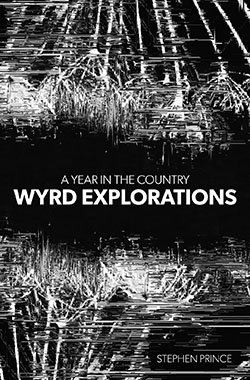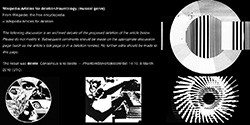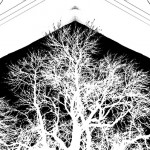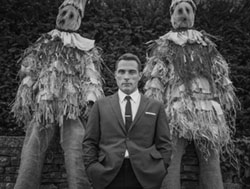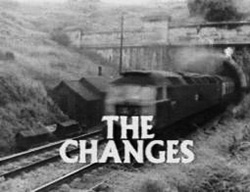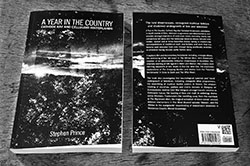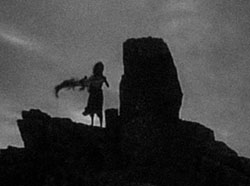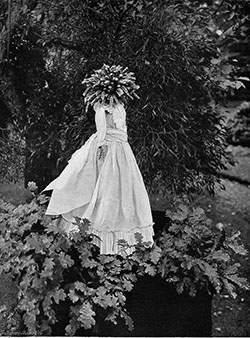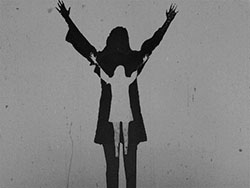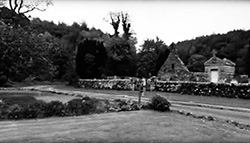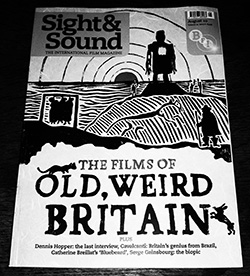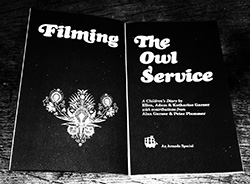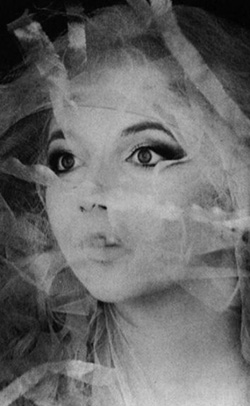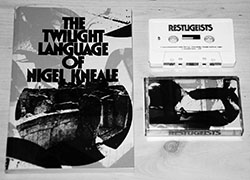
Trails and Influences: Electronic Ether. Case #39/52.
Well, if we should be talking about bucolic dreams of the countryside, then the Harps in Heaven song from Michael Powell and Emeric Pressburger’s 1950 film Gone To Earth would be somewhat apt…
…it reminds me of Willow O Waly from The Innocents (see Day #106/365) – it has a similar haunting, otherly quality and a purity of voice that just stops and captures you in your tracks.
And there is something wonderfully incongruous about this top hatted, neckerchiefed local chap carrying a full size harp through the countryside, avoiding the pitfalls of abandoned mines along the way… watching it felt like seeing a pathway or signpost to future folk explorers such as Joanna Newsome (see Day #72/365 for related fleeting flickerings)…
…and although it is a work of fiction, there is something decidedly real about it, it seems as though it is a documenting of another way of life, geographically not that distant from today but in spirit far removed.
 It put me in mind of Rob Young’s writing on Peter Kennedy/Alan Lomax’s folkloric documentary Oss Oss Wee Oss in his article The Films Of Old, Weird Britain (see Day #80/365):
It put me in mind of Rob Young’s writing on Peter Kennedy/Alan Lomax’s folkloric documentary Oss Oss Wee Oss in his article The Films Of Old, Weird Britain (see Day #80/365):
“…one of the strange survivals whose actual date of origin is almost impossible to trace, but whose very alieness points to an England from which modernity is almost insulated… manages to make this tiny fishing village appear as peculiar and exotic as Haiti in Maya Derren’s films of voodoo rituals…”
And then around the same point that I was being reminded of such things, I stumbled (restumbled?) upon David Sylain’s Gone To Earth album from the 1980s and wandered if it took its title from this film?

David Sylvian’s work, if I look back now could be seen to be some kind of earlyish starting point for what grew into being this particular year in the country; a fair while ago now I was somewhat enamoured/intrigued by the magic and textures of his album Secrets Of The Beehive and the single a little girl dreams of Taking The Veil*, which seemed to explore some kind of gentle but outer pastoralism (looking back such work is not all that removed both in spirit and chronologically from Virginia Astley’s From Gardens Where We Feel Secure – see Day #118/365) and coincided/intermingled with my discovering of England’s hidden reverse via Coil’s Horse Rotorvator…
…all of which brings me back to Rob Young, as many years later he wrote of that time:
“In the changed, materialistic Britain of the 1980s, the ideas about myth and magic, memorial landscapes and nostalgia for a lost golden age were banished to internal exile, but scattered links of the silver chain glinted in the output of certain unconventional pop musicians of the time, most notably Kate Bush, Julian Cope, David Sylvian and Talk Talk.” (Fom his book Electric Eden, see Day #4/365.)
Ah and re-reading further in the just amentioned Electric Eden, I see that David Sylvian’s Gone To Earth was a reference to the Powel and Pressberger film.
Anyway, writing about the song makes me want to wander away to listen to it once again.
Listen to the celestial strings here (just after 3 minutes in more precisely).
Interrelated encasings, textures and corruscations here.
 *Burrowing and delving further I see that this single was inspired by Max Ernst’s surrealist collage book of the same name… which leads me back towards constellations of culture/constellators within popular music (see Days #163/365 and
*Burrowing and delving further I see that this single was inspired by Max Ernst’s surrealist collage book of the same name… which leads me back towards constellations of culture/constellators within popular music (see Days #163/365 and
#250/365), which seems to have become something of a theme on this particular day of this particular year in the country and the loss of a gathering/looping of pop/the avante garde (see Day #306/365).
PS As a final point and talking of local exoticisms/colloquialisms, I think the scene above from Gone To Earth is one of the only times I’ve heard the word nesh used in film – it’s a very localised English phrase that means you feel the cold easily. Nice to here via celluloid tales indeed.




